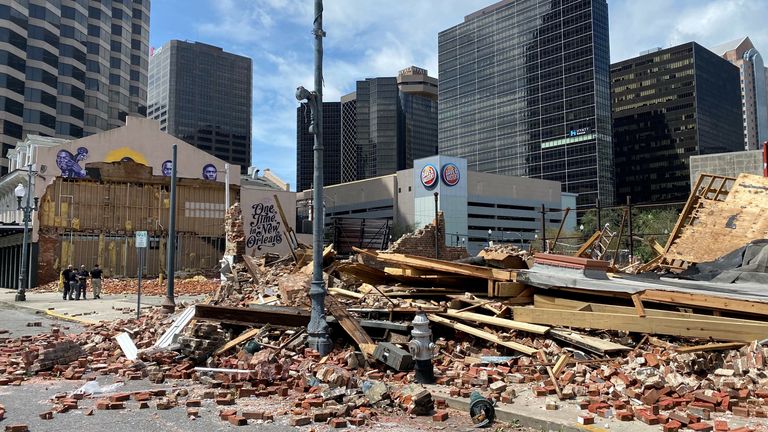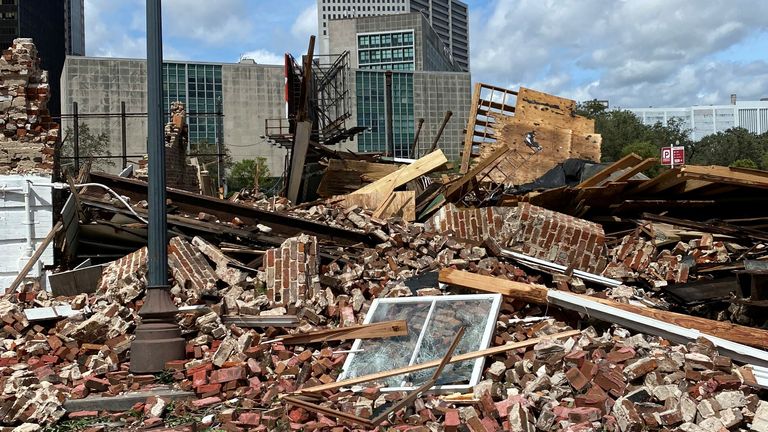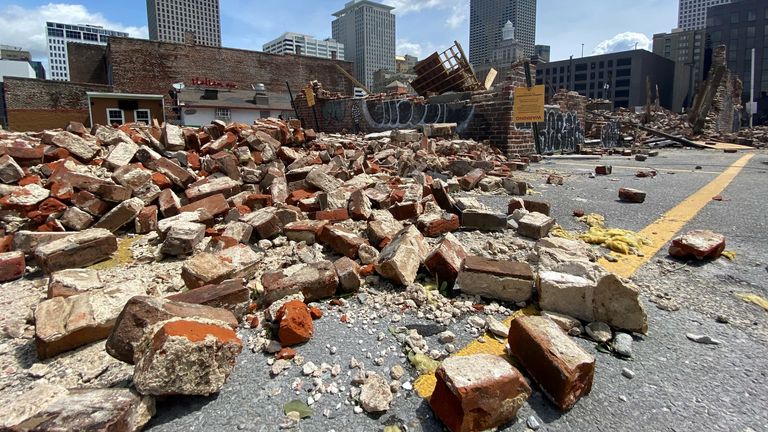Of all the things they feared Hurricane Ida would bring to their small lagoon community, the death of one of their neighbours was unexpectedly horrifying.
A 71-year-old man was apparently attacked and killed by an alligator as he checked on floodwaters at his home in Slidell near New Orleans.
His wife desperately tried to get help but with no electricity or phone signal.
The people of the Avery Estates, heavily wooded and riddled with swampy waterways, know alligators are also their neighbours. It is the price you pay for living amidst the wild beauty but this is the stuff of nightmares.
As she hitched a ride on the back of a truck out of the flooded neighbourhood, Paula Jacobsen shuddered at the news of what happened to her neighbour.
“It really freaked us out because it’s only one road over from ours and just the thought of an alligator being loose out here terrifies me.
“The thought of what happened to that poor guy is really sad. I can’t even imagine what he or she went through.”
Paula had heeded the warning and evacuated their home before Ida arrived. They learned the lessons when Hurricane Katrina flattened Slidell 16 years ago.
For Ida, Michelle Ross moved to the higher ground of his son’s house to escape the storm. The wife of the man who died is a close friend.
“It’s unbelievable,” she said. “It’s absolutely horrible, devastating.”
For hundreds of thousands in the New Orleans area, there are more basic concerns in the aftermath of Ida.
A city of 300,000 people could be without electricity for up to a month after the major power lines that span the Mississippi River and supply the city were brought down.
In a city with a history of feeling abandoned after natural disasters, Joe Biden’s promises that help is arriving can only go so far in sweltering summer humidity. No electricity means no air conditioning.
The crowds have surged at petrol stations as word spreads that they might have a supply.
It is lucky that the people of New Orleans are so famously resilient.
Halfway up a ladder on the way to fix her roof, Summer Fields laughed when asked what she thought about weeks without electricity.
“It’s a big mess and most people have left town I think because of the power outages,” she said.
“I just think there are a lot of people who are a lot worse off than we are.”
As if all that wasn’t enough to deal with, Louisiana was already facing a surge of COVID cases even before Ida arrived.
Hospitals are full and health officials worry people sheltering in close proximity or evacuating to other parts of the state could accelerate the spread. They are particularly concerned that the vulnerable will not even be able to reach help.
Ida may not have caused the immediate and widespread destruction that was feared but a different sort of crisis for many people is playing out in slow motion.


